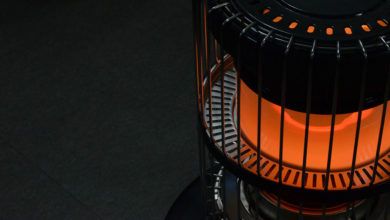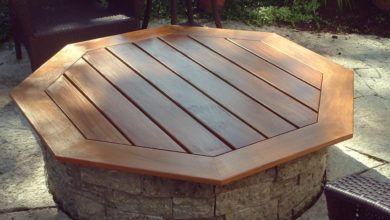Winter is on the way, and in this blog post, we go through all the factors you need to consider when buying a heater for your home. Note that in this article we are considering space heaters, if you want to install central heating at your place then you will have to look elsewhere. Getting just the right space heater required for your living space, with the right set of features, can save you hundreds of dollars every year on energy bills; whereas making the wrong purchasing decision can leave you in the red by an equivalent amount. So it’s really important that you get this right. Let’s have a look at the different things you need to weigh up …
Power source – either gas or electric
Of course, if no gas is available at your place, then that leaves electric as the only option. However, if you do have gas connected up at home, then you are faced with a choice between gas and electric powered heating, and you will have to shop around and compare prices and running costs for both gas and electrical. Bear in mind that the two may be completely different, ie what is the cheapest heater up front may be the most expensive of all to run and maintain in the long term. Generally speaking, portable electric heaters are cheaper to buy upfront than gas, with gas being more affordable to run – though of course you also have to consider each individual fan on its merits. Another benefit of gas over electricity (unless you have solar) is that of course, it generates far fewer greenhouse emissions. It also works even when the power is down. Note that gas heaters can be either flued or unflued: flued gas heaters have a built-in vent which transfers pollutants and water vapor to the outside, unflued heaters do not so ensure with an unflued gas fan that your room is adequately vented with the windows or door left slightly ajar. Among electric heaters, reverse cycle split systems are widely regarded as the most energy-efficient option.
The space to be heated, how quickly you want it to warm up, & the length of time you want it to be warm for
Make sure you get the right kind of heater for the type and size of space you want heated, for the period of time you want heating available for, and for how quickly you want the room to warm up. Let’s look at the different types of heaters out there on the market and how they fare on these three fronts, so that you can get a better idea of which one is right for your needs.
Radiant electric heaters generate a lot of heat in a very short space of time, they are ideal for small living spaces like bathrooms where heating is needed immediately (as soon as you get out of the shower), and for short periods of time (only whilst you are drying yourself). They instantly heat whatever is in front of them (eg. your body!) – they do not heat the air. You plug them into the wall and the power heats up an element that is designed to absorb energy and get hot very quickly. The element can be quartz tube, ceramic material, or oil inside a column. Because they don’t tend to contain any temperature control feature, these fans are not very efficient as a long-term heating option. And they don’t spread the heat very well either. Radiant heaters are relatively inexpensive though.
Column oil heaters: these heaters are best suited to heating a small space over a longer period of time – eg your bedroom or living room. They also generate no noise. They emit heat long after you turn them off (a tick for energy efficiency), and although they take equally as long to warm up, most modern versions come with a built-in timer so you can pre-set when you want the heater to turn on.
Panel heaters: these electrical heaters generate a less intense degree of heat than many other heaters out there; they warm up very gradually as well, so are NOT the best option if you want to heat up an area very quickly. They are best mounted up on a wall in your bathroom, living room or study. Panel heaters rely on convective heat transfer, ie they produce warm air that then rises – again they are best for a small enclosed space.
Fan heaters: although the cheapest option on the market, these heaters are NOT the most efficient over the long run; indeed they do quite poorly at keeping large spaces warm over longer periods of time, and they also generate a lot of noise. You have to keep the fan running pretty much constantly to keep the room warm. These heaters are thus best suited to quickly heating up a small space like your bedroom or study, they are ideal if you want to rapidly heat up your bedroom before jumping into bed. They rely on convective heat transfer, ie the fan heats air which then rises.
Gas Heaters: the most efficient heating option over the long run, best suited for heating small to medium living spaces like your living room.
Energy efficiency
This factor could really make or break your investment. Which type of heater is the cheapest to run? According to many authorities, a really energy efficient reverse cycle split system air conditioner is the most efficient way to heat (and cool!) your home.
Additional features
When shopping for your dream heater, consider the extra features you want included. Again, these have the potential to save or cost you a lot of money depending on your situation. Here are some of the mod-cons modern heaters may contain:
- Temperature control/thermostat: maintains room temperature at a steady state, great energy efficiency tool.
- Safety shut-off mechanism: automatically shuts off the heater in the event that you knock it over, or if the temperature rises above a certain point, an important safety feature.
- With gas heaters, does it have an oxygen-depletion safety valve? This device detects oxygen levels and shuts off the gas supply when they drop too low, thus preventing carbon monoxide poisoning.
- A gas heater might also have a flame-failure shut-off valve which halts the gas supply in the event that the flame fails.
- Timer: program your heater to come on at periodic intervals, set the time period you want it to remain running for as well.
- Electronic display: of temperature, settings etc. Handy to be able to refer to.
- Inbuilt fan, helps to distribute heat around the room.
- Humidifier, adds moisture to the surrounding air to stop the heater drying air in the room.
- An air filter removes impurities from the surrounding air to prevent the incidence of allergies etc caused by airborne air particles.
- Child lock to protect your kids.
There you are then! If you consider all of these factors before making your final purchasing decision, you should end up with exactly the right heater for your needs. Keep your place warm this winter, and do so in the most effective and economical manner possible.




